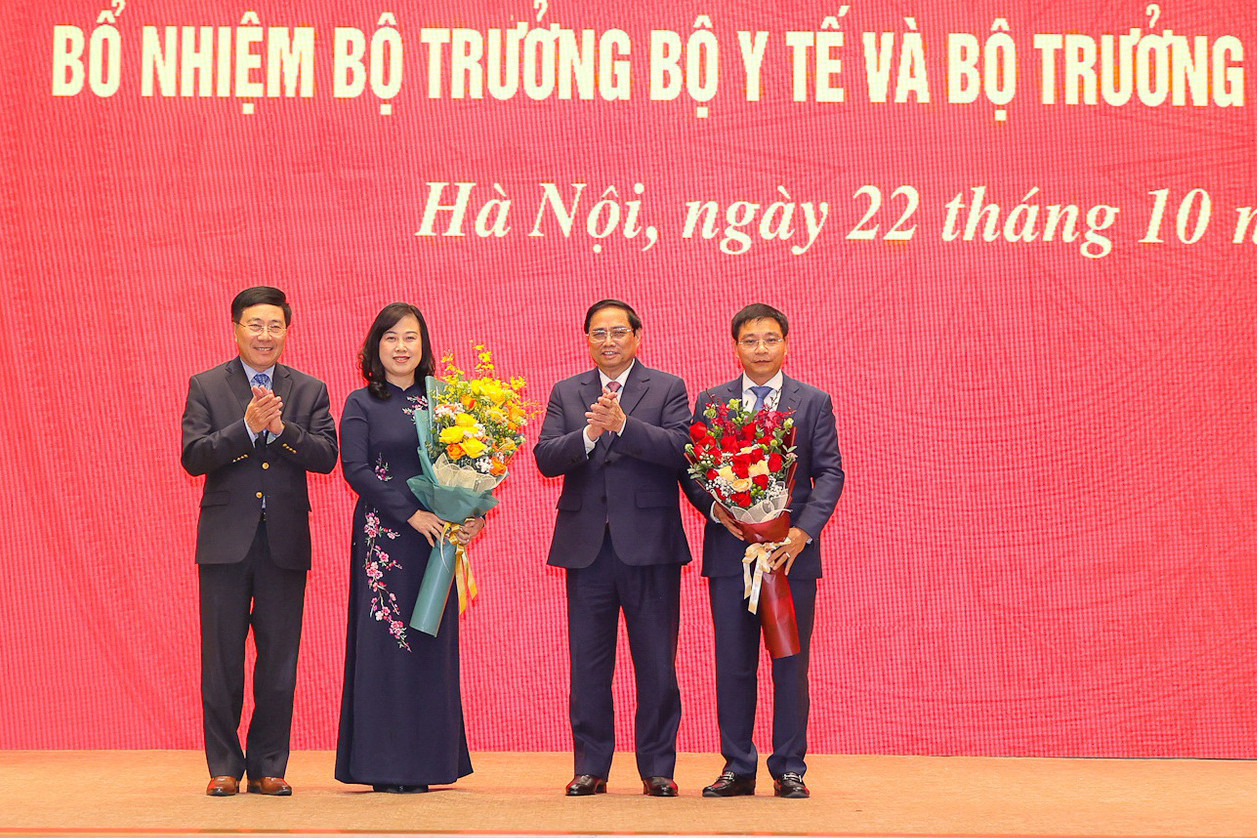
For the former ministers of Health, all of them graduated from medical schools and worked in the health sector before they were appointed to the posts. However, some former ministers of transport did not study transport at university.
It appears that there is a rule in appointing cabinet members, if one considers the training background of members. Ministers can have different majors - for example, the Ministry of Home Affairs (MHA) and Labor, War Invalids and Social Affairs (MOLISA).
Meanwhile, at other ministries, the ministers have to study the appropriate major to work in the fields they are appointed to, for example, ministries of Justice, Education and Training, Science and Technology, National Defense, and Public Security.
The Minister of Justice has a bachelor’s degree in culture, while the Minister of Education and Training has a doctorate in construction.
The former ministers of Health all finished medical school, while the former ministers of Transport finished transport school. However, with the latest appointment, the rule has changed.
In other countries, there is no requirement for ministers to graduate with a major in the field which they manage.
First, most ministries are multi-disciplinary, multi-field and no one can study three or four majors within the sphere of management of one ministry.
Second, ministers in these countries are politicians, which means they are in charge of, for example, national defense policies, national security policies and policies on civil servants. That is why in many countries the Minister of National Defense is not an army officer or a general.
Third, ministers have officers who act as assistants in designing institutions and policies as per the instructions of the ministers.
The appointment of ministers of Health and Transport in Vietnam clearly bears the stamp of the personnel arrangement method as seen in other countries.
Some people worry that appointments done this way will cause difficulties for the two ministers who lack experience in the fields they work in. Meanwhile, others think this is an experiment of the Party’s personnel policy.
In personnel work, since 1986, in addition to traditional approaches, the Party has applied innovative ways to find and cultivate capable people, especially strategic cadres.
The ways include:
First, rotating cadres from the central government to localities and vice versa.
Second, in order to become ministers, cadres have to be leaders of provinces.
Third, provinces and cities’ Party secretaries are not local people.
Fourth, reforming the way of assessing cadres in association with their efficiency in work.
Fifth, a confidence vote is held for cadres appointed or approved by the National Assembly.
Sixth, organizing competitions to find leaders and managers.
Seventh, asking for asset declarations.
Eighth, encouraging disciplined leaders and managers to resign from their posts.
The reality has shown that new methods have brought success. Many policies and solutions on personnel work were applied on a trial basis first before being applied on a larger scale throughout the political system.
The appointment of the new ministers of Health and Transport was a new trial in the Party and the State’s personnel work. Time will give answers to the question about the success of this trial period.
Experience shows that something new and unprecedented can be difficult to implement, but once it succeeds, it will open up more possibilities for replication and achieve greater results.
Dinh Duy Hoa